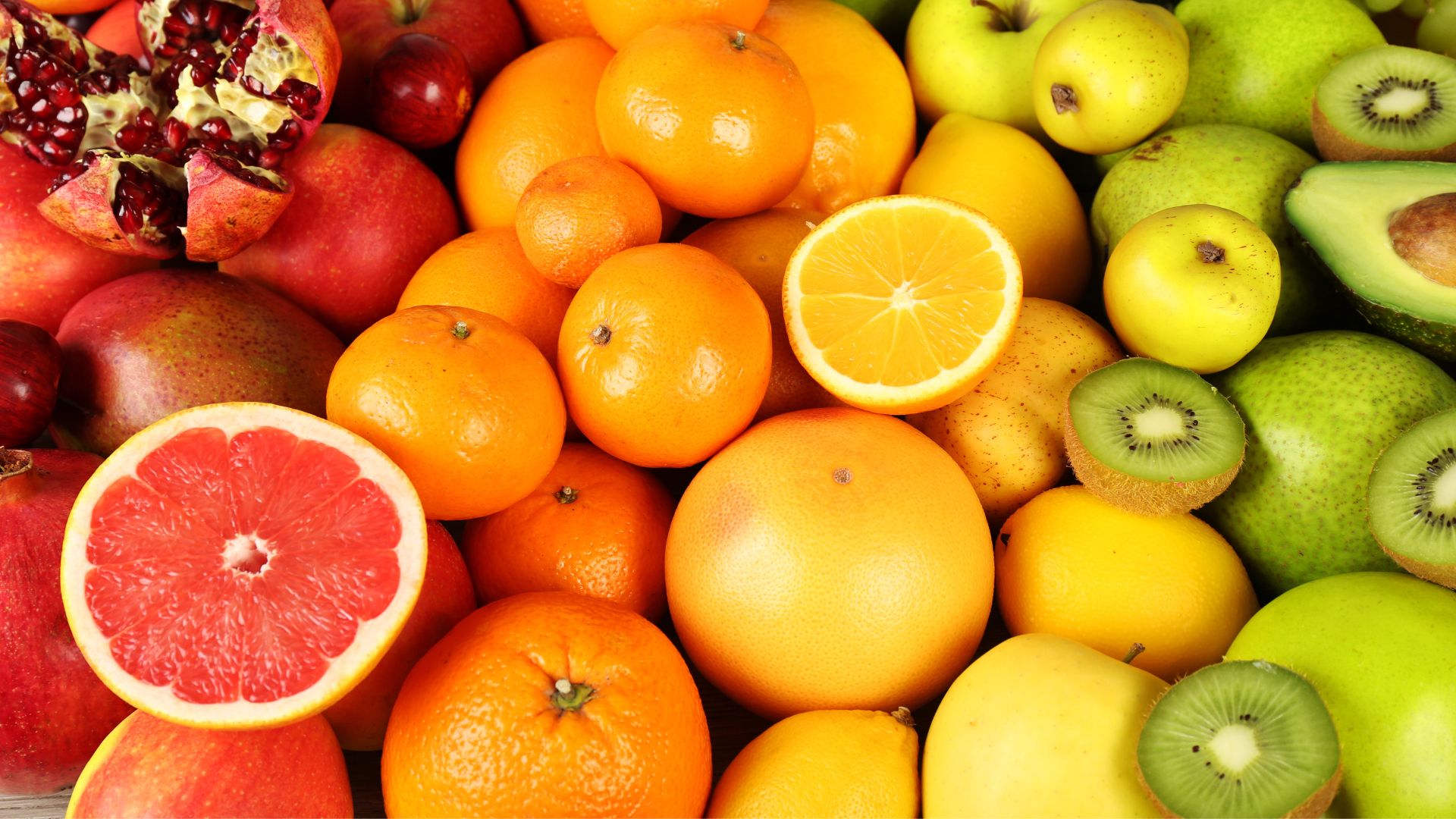Winter can feel cold and gloomy, but do you know what makes it better? Winter fruits! They are fresh, juicy, and packed with vitamins to keep you healthy and energized. Some fruits are perfect for boosting your immune system, while others help with hydration and digestion.
If you’re wondering which are the best fruits for winter, I’ve got you covered. Let’s dive into the details, including how these fruits help your body and fun ways to eat them. Stay warm, healthy, and happy this winter!
Fruits for Winter
When the temperature drops, your body craves foods that keep you warm and healthy. Winter fruits are packed with vitamins, antioxidants, and fiber to support your immune system and energy levels. They taste great and help you stay hydrated during the dry, cold months.
Let’s explore some of the best fruits to eat in the winter season:
Apples

If there’s one fruit that screams winter, it’s apples. These classic winter fruits are available year-round, but they taste best when the weather turns cold. Whether you love a tart Granny Smith or a delicious Fuji, there’s an apple for everyone.
Since they are packed with fiber and antioxidants, apples help with digestion and keep your immune system strong. The fiber in apples also helps control appetite, preventing overeating and keeping energy levels stable throughout the day. Whether you’re enjoying them raw or in a hot cider, this fruit is a must-have during the cold months.
The best thing about apples is their versatility. You can eat them fresh, bake them into a warm pie, or even slice them up with peanut butter. They also last the whole season long, making them perfect for stocking up in winter.
Grapefruit
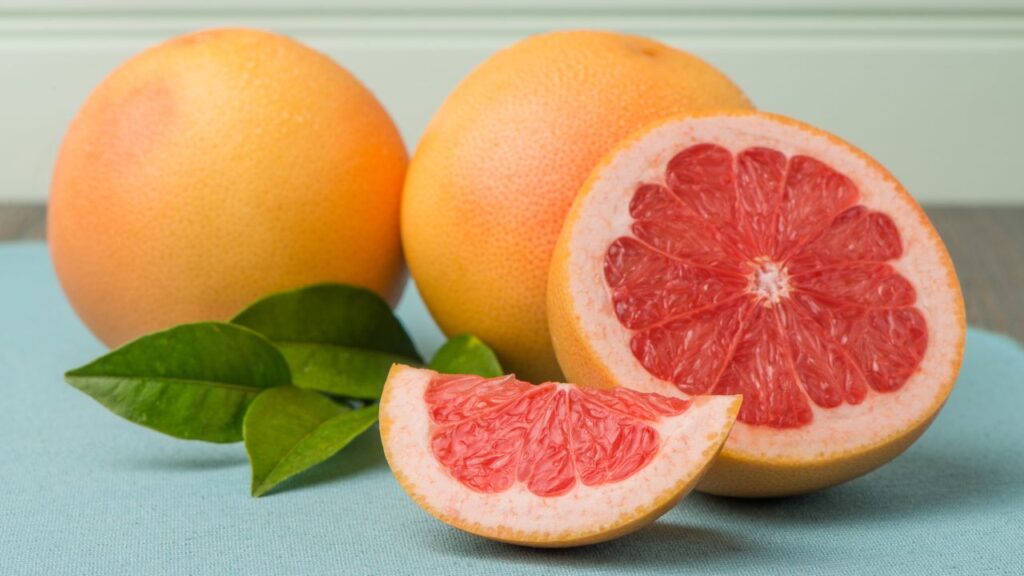
If you need a bright burst of vitamin C during late fall and winter, grapefruit is your best friend. This citrus fruit is not just refreshing but also packed with nutrients that help regulate blood pressure and boost immunity. It also has antioxidants like flavonoids, which help reduce inflammation and support overall health during winter.
One of my favorite things about grapefruit is its ruby red variety. It’s sweeter than the white kind and makes the best juice! Just one glass of grapefruit juice in the morning can give you a fresh and healthy start to the day.
If you’re not a fan of its slightly bitter taste, try adding a little honey or mixing it with other citrus fruits for a flavorful twist. Whether you enjoy it fresh or as a juice, grapefruit is a perfect addition to your winter diet.
Kiwis

Winter wouldn’t be complete without Kiwi. Simply put, this fruit is packed with vitamins that help fight off seasonal sniffles. In fact, believe it or not, a single kiwi has more vitamin C than an orange!
Another reason kiwi is ideal for winter is its role in digestion. During the cold months, people often eat heavier, comfort foods, which can slow down digestion. P_lus, this fruit contains fiber and an enzyme called actinidin, which helps break down proteins and supports smooth digestion.
One of the best things about ripe kiwis is that you can eat them raw—just scoop out the soft green flesh, or if you’re feeling adventurous, you can even blend them into smoothies. Their natural tangy sweetness makes them a fantastic addition to your winter meals.
I love having kiwi for breakfast because it keeps me energized during the winter months. You can add it to yogurt, or cereal, or just enjoy it as is!
Kumquats
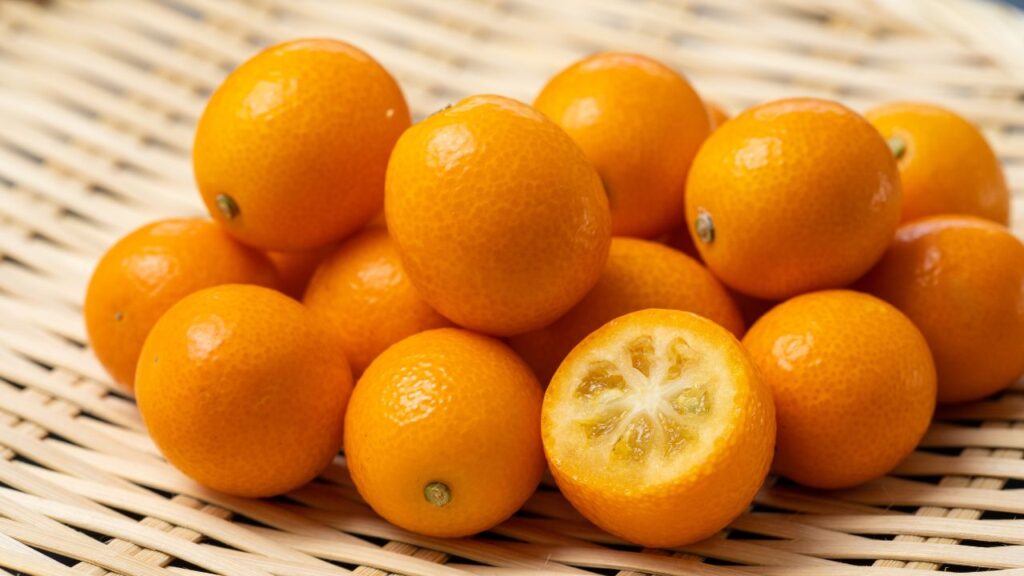
If you haven’t tried Kumquats yet, you’re missing out! These tiny citrus gems are one of the most fun winter fruits to eat. Unlike other citrus fruits, you can actually eat the whole thing—thin skins, seeds, and all! If you eat the whole thing, you will enjoy amazing health benefits.
The fiber in ripe kumquats helps keep the digestive system running smoothly, preventing constipation and promoting a healthy gut. The natural acidity in kumquats also helps stimulate digestion and improve nutrient absorption, ensuring your body gets the most out of the foods you eat during winter.
But I think what makes kumquats special is their sweet flavor combined with a tart kick. The peel is the sweetest part, while the inside has a tangy citrusy taste. They are perfect for cooking, whether in marmalades, desserts, or even savory dishes.
If you love citrus but want something a little different, kumquats are a great option for winter. Their bright color and refreshing taste make them a favorite during the cold months.
Lemons

Winter is the perfect time to enjoy lemons, especially if you want to stay healthy. Whether it’s a regular lemon, a sweeter Meyer lemon, or even a rare pink lemon, they all add a bright flavor to your meals.
But the real reason you should have lemons in winter is their ability to soothe sore throats and clear congestion. The antibacterial properties of lemon help kill germs in the throat, while its acidity helps break down mucus, making it easier to breathe.
Lemons are also excellent for skin health, which is often affected by dry and harsh winter weather. Their vitamin C and antioxidants help reduce dryness, brighten the skin, and keep it looking young.
Lemons add a zesty touch to everything from salads to teas. A warm cup of lemon water with honey is one of the best ways to soothe a sore throat in fall and winter. No matter how you use them, lemons are one of the most essential winter fruits.
Oranges

Nothing says winter like oranges. Whether you prefer sweet oranges, mandarin oranges, or blood oranges, they are a staple in the colder months. With so many orange varieties to choose from, you can enjoy them in different ways. You can:
- Drink juice
- Add them to other citrus fruits, like tangerines in a salad
- Simply peel and serve them.
One of my favorite things about oranges is their taste—they are refreshing, juicy, and naturally sweet. Plus, they are packed with vitamin C to help keep your immune system strong during the cold season.
Pears
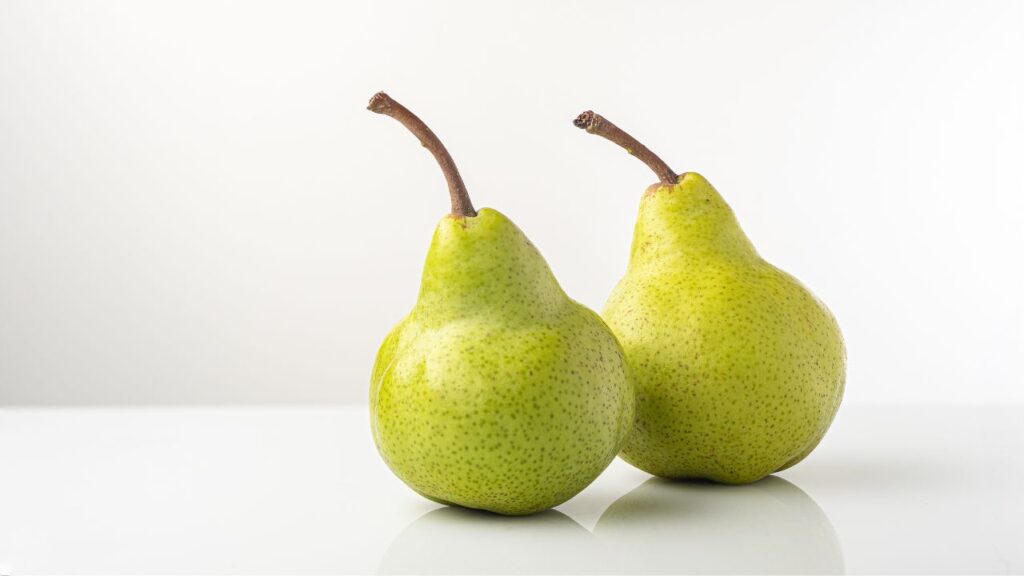
When the weather turns cold, nothing is more comforting than a juicy pear. They are definitely one of my favorite winter fruits to snack on. These delicious fruits are at their best in fall, winter, and January, making them one of the top seasonal choices.
Since ripe pears are full of fiber, they help with digestion and keep you feeling full. They also contain antioxidants, like Quercetin which help reduce inflammation. On top of that, they protect cells from damage caused by winter stress and environmental changes.
Pears come in different varieties, each with a unique sweet flavor. Whether you enjoy them fresh or use them in desserts, they never disappoint. Try baking pears with cinnamon or pairing them with goat cheese for a fancy treat.
Pomegranates
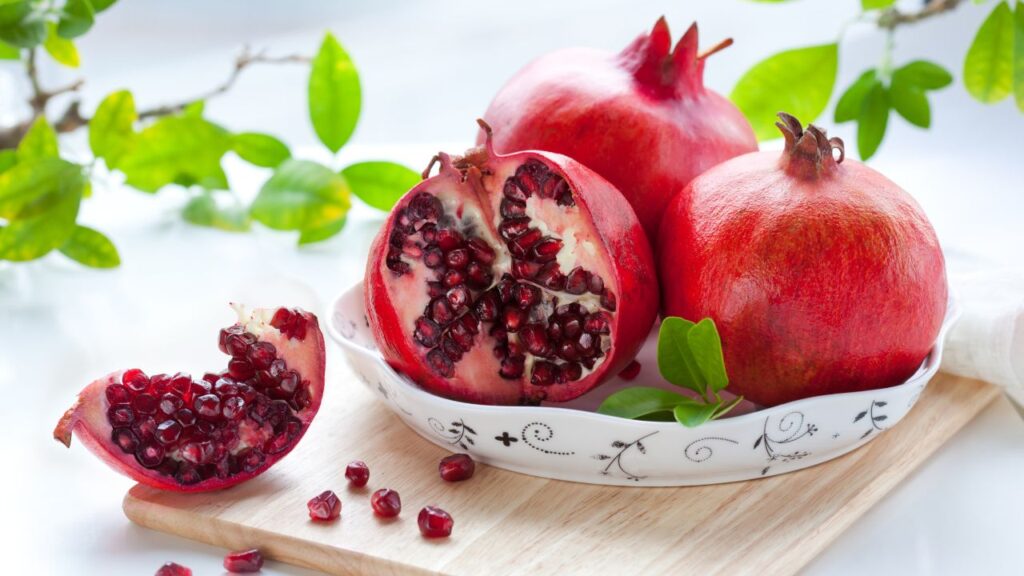
If you love vibrant colors and juicy textures, you need to try pomegranates. These winter fruits are packed with antioxidants, making them perfect for boosting your health.
The best part? The pomegranate seeds! They add a delicious crunch to salads, yogurt, and even smoothies. If you’re looking for fun ways to start adding winter fruits to your diet, pomegranates are a great place to start.
Try them in winter fruit recipes, or just enjoy them straight from the fruit. Either way, they’re a delicious addition to your meals.
Passion Fruit
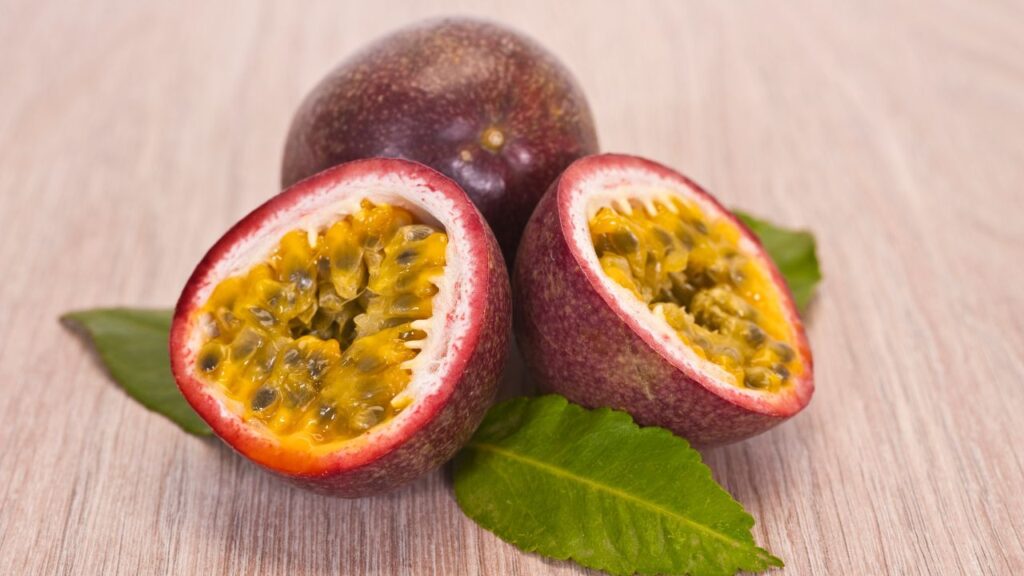
If you want tropical fruit in the cold season, passion fruit is the way to go. It’s juicy, slightly tangy, and perfect for sweet recipes. But the real reason you should eat passion fruit is the health benefits. Passion fruit is rich in vitamin C and antioxidants, both of which help keep the immune system strong during the cold season.
Another reason passion fruit is perfect for winter is its ability to support respiratory health. The fruit is known for its anti-inflammatory properties, which can help soothe a sore throat, ease congestion, and reduce cough symptoms. With viruses spreading more easily in winter, consuming passion fruit regularly can help reduce the chances of getting sick.
The best way to eat it? Just scoop out the pulp and enjoy it fresh! You can also use it in cooking, mix it with persimmons, or add it to recipes for an exotic touch. Passion fruit has an amazing flavor that makes it a fun and unique fruit to enjoy in winter.
Clementines
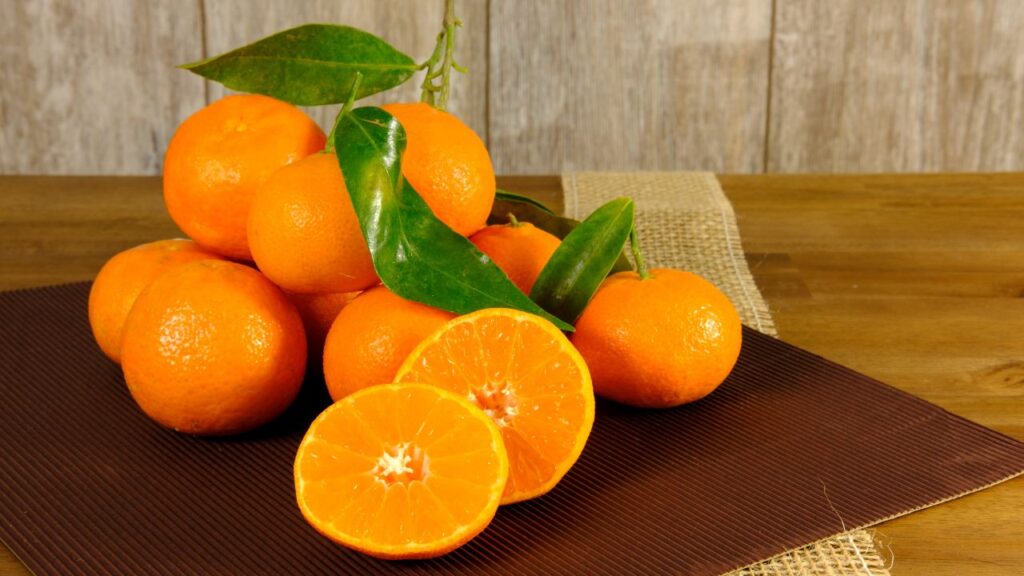
Last but not least, we have clementines—the cutest little oranges you’ll ever see! They are a type of willowleaf mandarin orange, making them sweeter and easier to peel than regular oranges.
Clementines are a great snack for kids and adults. They also go well in savory dishes, especially when paired with Brussels sprouts, walnuts, or even tomatoes.
Now, let’s discuss the health benefits. Clementines are packed with vitamin C, which helps strengthen the immune system. Winter is the season when colds and flu are most common, and eating clementines regularly can help the body fight off infections.
Another reason clementines are perfect for winter is their high water content, which helps keep the body hydrated. Cold weather often leads to dry skin and dehydration, but eating clementines provides both hydration and essential nutrients.
On top of that, they also contain fiber, which supports digestion and keeps the stomach healthy during the holiday season when heavy meals are more common. So, if you want a winter fruit that’s both refreshing and beneficial, clementines are a must-have.
Conclusion
Winter doesn’t have to be dull when you have the fruits to enjoy. These fresh, juicy, and nutritious options will help you stay strong, hydrated, and full of energy all season. Apples, grapefruit, and kiwis are the most popular choices, but you should also have kumquats and oranges, as they can keep you energized.
Similarly, pomegranates and passion fruits bring a tropical vibe to the cold season. Make sure to stock up on these seasonal gems and enjoy them in new and tasty ways.

